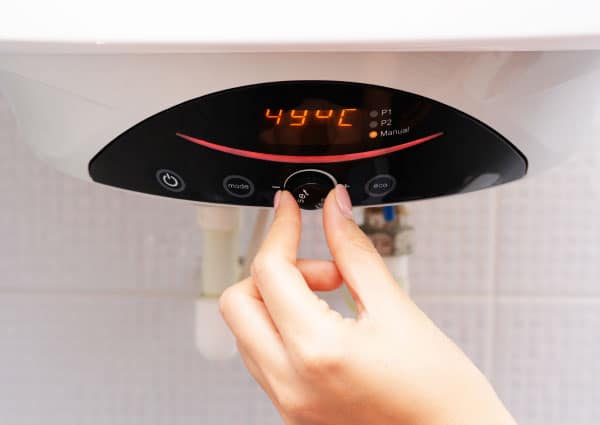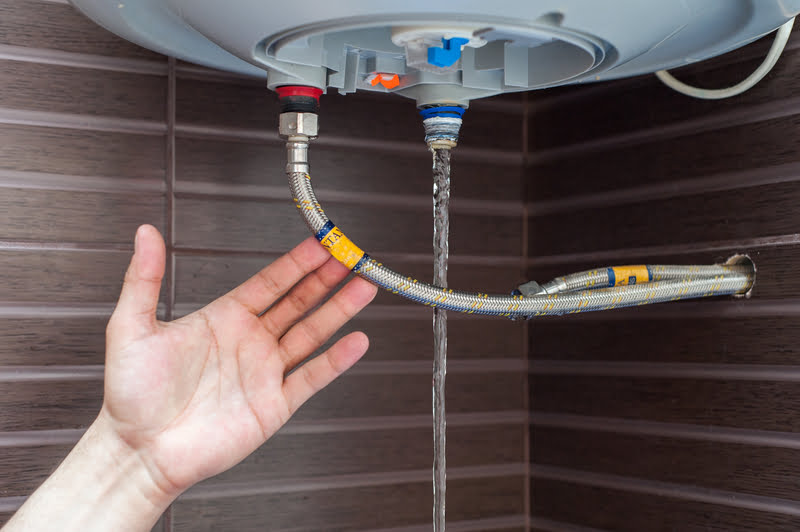Tackling the Most Frequent Hot Water Heater Emergencies
Tackling the Most Frequent Hot Water Heater Emergencies
Blog Article
Just how do you really feel in relation to Common Hot Water Heater Problems?

A hot water heater is one of the most essential fundamental devices that can be found in a home. With water heaters, you do not need to go through the anxiety of heating water by hand whenever there is a demand to wash, wash, or the meals. However, there is constantly an opportunity that your water heater would certainly break down similar to the majority of mechanical devices.
It is important to note any type of little malfunction and also tackle it rapidly before things get out of hand. Most times, your water heater starts to malfunction when there is an accumulation of sediments as a result of continuous use. As a preventative measure, regular flushing of your hot water heater is recommended to prevent debris build-up and avoid useful failing.
Usual water heater emergencies as well as how to manage them
Inadequate warm water
Taking care of a not enough supply of hot water can be discouraging. It may be that the hot water heater can not support the hot water demand for your apartment. To deal with this problem, you can attempt to change your heating system's temperature level dial and wait for a couple of mins. You can ask for the aid of an expert plumber if the issue lingers. Additionally, you could upgrade your hot water heater to one with a bigger capability.
Fluctuating water temperature.
Your water heater could start creating water of different temperatures typically ice cool or scalding hot. In this scenario, the first thing you do is to make certain that the temperature is readied to the desired level. If after doing this, the water temperature keeps altering during showers or various other activities, you may have a damaged thermostat. There could be a demand to replace either the home heating or the thermostat system of your water heater.
Dripping water heater storage tank.
In this scenario, you need to transform off your water heating system, permit it to cool down, as well as very carefully look for the source of the issue. At times, all you need to do is to tighten up a couple of screws or pipe connections in instances of small leaks. If this does not function and the leakage lingers, you may require to utilize the services of a professional for a proper replacement.
Blemished or smelly water
When this happens, you require to understand if the concern is from the water or the container source. If there is no funny scent when you run cool water, then you are particular that it is your water heater that is malfunctioning. The odiferous water can be caused by rust or the build-up of microorganisms or debris in the water heating unit container.
Final thought
Some home owners disregard little caution and minor faults in their water heater device. This only causes further damage and a possible full breakdown of your device. You ought to deal with your hot water heater mistakes as quickly as they come up to avoid even more expenditures and also unnecessary emergency troubles.
With water heaters, you do not require to go through the stress of home heating water manually every time there is a need to take a bathroom, do the laundry, or the recipes. It may be that the water heater can not sustain the hot water demand for your apartment or condo. Your water heating unit could start producing water of different temperatures usually ice scalding or cold warm. If there is no amusing smell when you run cool water, after that you are certain that it is your water heating system that is damaged. The stinky water can be triggered by corrosion or the buildup of bacteria or sediments in the water heater storage tank.
What’s Wrong With My Water Heater?
Not Enough Hot Water
You probably encounter this problem in the shower or while washing dishes. As you run your water, you’ll notice it starting to cool down. Turning up the hot faucet may not work, or it may only heat the water for a short period. Your hot water probably comes back and works normally one or two hours after you use it up.
If you’ve never had enough hot water, your heater may be too small for your home. If you haven’t had a problem until recently, there’s probably something’s wrong with your heater’s thermostat. Try adjusting it to see if you can feel a difference. Even if the thermostat’s working, the heating element itself could have burnt out. It’s also possible that a clog has restricted water flow into or out of the heater. Luckily, none of these problems are hard to fix, as long as you call them in early.
Water is Too Hot
Unregulated water heaters can make water dangerously hot. You probably have this problem if you’ve been scalded by your hot water. It’s also a likely culprit if you have trouble getting your faucets to produce a comfortable temperature. This problem is easy to fix, but it can also be a serious health hazard if you don’t address it. If you think your water is too hot, don’t doubt yourself; look into it!
Start by finding your heater’s thermostat and mark its position with a pen. Turn the thermostat to a cooler setting. Wait a couple hours to see if the problem is solved. If it isn’t, listen for boiling in the tank and look for water that comes out of the faucet steaming. In those cases, your temperature-pressure relief valve may be malfunctioning. This is a serious problem that can be dangerous, so you should have it looked at right away.
Discolored or Smelly Water
If all your water looks rusty or smells weird, there’s probably a problem with your pipes. If only your hot water looks weird, however, your water heater is probably at fault. Hot water discoloration comes in several varieties. It could look orange or brown-ish, taste rusty, or feel grainy. It could also look yellow or green-ish and taste gross or feel slimy. Either way, it’s a sign that there’s something wrong with your water heater’s tank.
Usually, hot water discoloration means sediment has built up in your tank. Sediment is made up of hardened minerals that accumulate on the inside of the water heater’s walls. When enough sediment builds up, it causes all kinds of problems–including your discolored water. Try flushing your water heater tank to clean out built up sediment. If the water still tastes rusty, your tank’s rust-preventing anode rod may have worn out. A pro can replace an anode rod easily, but without one, your tank could rust beyond repair relatively quickly.
Leaking
Water heaters can leak from several different places, and each leak means something different. If the leak is coming from a pipe above the heater, it’s possible the tank itself hasn’t been compromised. The cold inlet, hot outlet, and T&P pipes could all leak from above. Try tightening the problematic valve. If that doesn’t work, then the valve or pipe will have to be replaced.
If the leak is coming from the bottom of the tank, it’s important to determine exactly where it is. The leak could be coming out of the drain valve or your T&P valve below the tank. You can replace those valves and preserve the tank itself. If you notice the water tank itself leaking, however, that probably means it’s corroded beyond the point-of-no-return. Leaking water heaters are a big deal, so you should get yours replaced ASAP.
https://www.punctualplumberdallas.com/blog/whats-wrong-water-heater/

Do you appreciate more info about Is Your Water Heater Leaking?? Create feedback further down. We'd be glad to find out your feelings about this blog post. Hoping that you come back again before long. Enjoyed our write up? Please share it. Help another person locate it. Thanks for your time. Please come visit our blog back soon.
Call Us Today Report this page